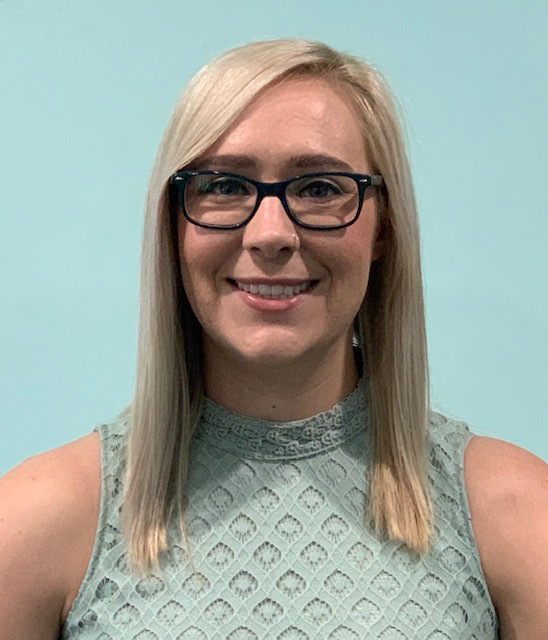|
Eating Disorder Clinic Newsletter
June 2020 |
|
|
|
|
|
Welcome to the Omni Eating Disorder Clinic Newsletter!
Our newsletter features news and updates regarding the clinic and our services, as well as eating disorder, health, and nutrition articles, recipes, staff spotlights, and more! |
|
|
WHAT WE DO:
Omni's Eating Disorder Clinic offers outpatient, intensive-outpatient, and partial hospitalization services for individuals with eating disorders and co-occurring conditions. Our staff includes therapists, day program specialists, an intern, APRN, and dietitian, as well as an administrative assistant that can assist you in getting started with services and answering any questions you may have. For more information regarding our staff, please click here!
Day Program clinic hours are Monday through Friday from 8a-8p, and Saturday/Sunday from 9a-3p. Flexible outpatient scheduling is available as needed.
8715 Oak Street, Omaha, NE 68124
402-333-0898
https://omniic.com/omni-services/eating-disorders-program/ |
|
NEWS AND UPDATES:
Omni Inventive Care continues to closely and continually monitor the latest COVID-19 developments and wants to reassure you that, as always, the health and safety of our clients and employees remains our top priority. For more information regarding Omni Inventive Care’s response to COVID-19, please click here.
Omni Inventive Care’s Eating Disorder Clinic is now offering virtual IOP and PHP services! We are currently accepting admissions for all settings of care. Clients receiving virtual services will receive the same evidence-based services that were previously delivered on-site, including individual and group therapy sessions, therapeutic meal times, nutritional counseling sessions, and weekly medical sessions with our APRN.
|
|
|
 STAFF SPOTLIGHT:
STAFF SPOTLIGHT:
Erika Ronan joined the team at Omni's Eating Disorder Clinic as our Administrative Assistant in January 2019. At the clinic, Erika completes referrals and schedules intakes, and works closely with insurances to ensure our clients get the care they need. Erika plays an integral part in the day to day operations of the clinic, and we couldn't do it without her! Erika earned her Associates degree in Early Childhood Education at Metropolitan Community College. She then received her Bachelor’s degree in Behavioral Science from Bellevue University in 2019. She was born and raised in Omaha and worked with young children for 10 years prior to earning her degree. Erika’s favorite season is summer, and in her free time, she enjoys being outside, camping, and spending time with her family.Thanks for being a part of the team, Erika!
|
|
|
|
|
We care about your recovery and want you to feel supported during this time.
We are offering a FREE, virtual support group for individuals with eating disorders, as well as their family, friends, and/or other supports -
now at a new time!
To register, please call 402-333-0898 or email Ashley.carpentier@omniic.com. |
|
|
|
|
 |
New movement group at the Omni Eating Disorder Clinic
We know that exercise and movement are important, but exactly how much should we be doing? And what should we be doing?
The definition of exercise is “bodily or mental exertion, especially for the sake of training or improvement of health” and “something done or performed as a means of practice or training” (dictionary.com). Exercise means that we are putting some type of effort or force into exertion to have some type of effect. Exercise is for the benefit of our health and wellbeing.
Exercise has many benefits. Some of these include:
- Prevents memory loss
-
Increases brain size
- Improves sleep
- Reduces depression and anxiety
- Improves mood
- Reduces your risk of heart diseases
- Helps manage blood sugar
- Strengths muscles and bones
- Improves sleep
- Improves energy
Obviously, there are so many benefits to exercise. But why don’t people move their bodies more? Often, people do not know where to start. People see the benefit in exercise, but they do not know how to exercise or what to do.
The CDC recommends 150 minutes (2 hours and 30 minutes) to 300 minutes (5 hours) a week of moderate-intensity, or 75 minutes (1 hour and 15 minutes) to 150 minutes (2 hours and 30 minutes) a week of vigorous-intensity aerobic physical activity, or an equivalent combination of moderate- and vigorous-intensity aerobic activity. It's recommended that aerobic activity should be spread out throughout the week (U.S Department of Health and Human Services, 2018). Many options are available from walking to weightlifting, swimming, and yoga. The important piece is to find what you enjoy and just move your body.
Over-exercise is common in eating disorders. Individuals with eating disorders exercise excessively to control their weight or often, as a method to cope with stressors or emotions. At the Omni Eating Disorder Clinic, we strive to teach clients how to do everything, whether it be eating or exercise, in moderation and to normalize the behaviors.
To help our clients learn and practice appropriate and healthy movement, the clinic is now offering a movement group that aims to teach clients the benefits of exercise and to practice what moderate exercise and movement looks like. Each group session will include a discussion or processing portion, as well as an exercise activity. Topics addressed will include benefits of exercise, types of exercise that are available, as well as signs and symptoms of compulsive over-exercise. Additionally, the group will help our clients to recognize and understand the impact of over-exercise and identify steps to take to reduce the compulsive behaviors.
We desire for clients to live healthy and happy lives, free of their eating disorder. Our goal is to help clients be able to achieve recovery while incorporating movement and exercise in a more balanced and mindful way.
Ashley Carpentier
Day Program Specialist
Omni Eating Disorder Clinic
|
|
|
|
|
Recipe of the Month:
{Easy Crock Pot Roast} |
|
|
Most of our lives have changed drastically over the past few months. We have been required to alter our lives around factors such as social distancing, home schooling our children, and changing our daily routines to spend more time at home. Most of us are eating more or all meals at home. Crock pot meals provide an easy and nutritious option for meals. Crock pots can be used to make stews, soups, chili, beans, and much more. Below is an easy recipe for crock pot beef roast. Other meats may be substituted for the beef, such as pork or chicken. Invest in a food thermometer to check doneness of meats for food safety.
|
|
|
|
|
Crock Pot Roast:
3 pounds of beef roast
2 onions (diced)
4 potatoes (quartered)
2 sticks celery (cut in ½” pieces)
4 carrots (peeled and cut in 1” pieces)
2 quarts beef stock (unsalted may be used)
Garlic powder 1-2t.
Onion Powder 1-2t.
Salt and Pepper
Wash fresh vegetables and cut as specified. Place all ingredients in crock pot. Cook in crock pot on medium setting for approximately 6 hours until internal temperature of beef is 145 degrees. Serve with a fresh vegetable salad and/ or rolls as desired.
Chicken may be used instead of beef, substituting chicken stock instead of beef stock. Internal cooking temperature for chicken should be 165 degrees.
Margaret Hodges, RD, LMNT
Omni Eating Disorder Clinic
|
|
|
Natural remedies and COVID-19: Are they effective?
The media is filled with news about COVID-19. Many people have fear about the virus and seek ways to keep themselves healthy and safe. You may see many advertisements for alternative remedies to help you prevent or fight the virus. Some of these remedies include herbal therapies, teas, essential oils, tinctures, and silver products such as colloidal silver. There is no scientific evidence that any of the remedies can prevent or cure COVID-19. Claims of coming from a “natural source” does not mean better or safe. They may even be harmful to your health. The best strategies to prevent catching the virus include the tips provided earlier to reduce exposure, wash your hands, eat a healthy diet and get plenty of rest.
Deb Wisnieski, Ph.D., APRN
Omni Eating Disorder Clinic
|
|
|
|
|
Recovery isn't easy, at first. It takes time. It takes more work, sometimes, than you think you're willing to do. But it is worth every hard day, every tear, every terrified moment. It's worth it because the trade-off is this: you let go of your eating disorder, but you get back your life.
- Marya Hornbacher
|
|
|
RECOVERY RESOURCES:
Blog by Alison Pelz:
Podcasts to help reject the diet mentality
Click here for a list of podcasts that are supportive to recovery and say XX NO XX to diet culture! |
|
|
| |
|
|